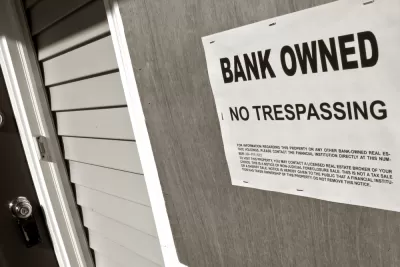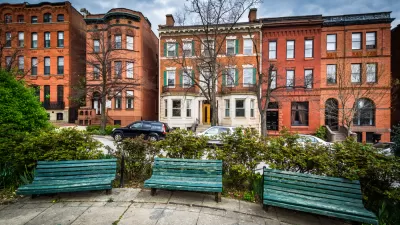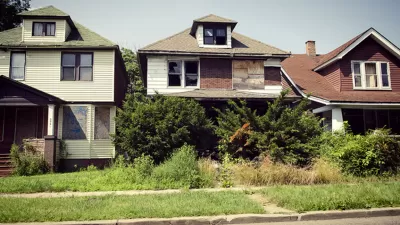The city of St. Petersburg provides a model for transforming blight to a blessing.

J. Brian Charles reports on the blight reduction efforts of St. Petersburg, Florida, where the city is leveraging the judicial system and private sector resources.
"In 2014, the city became the first in Florida to use the judicial system to wrestle neglected properties away from their owners. Because the properties, which numbered nearly 800 across the city, owed a combined $4 million in liens and unpaid assesments [sic], the city had legal standing to file lawsuits against the owners and move the properties into foreclosure," according to Charles.
The next step in the process, after seizure, is to turn over the land to affordable housing developers through auction. "The city has cut the number of boarded and vacant homes by more than three-quarters since the program was launched less than four years ago," according to Charles.
"What's unique about St. Petersburg's effort is that it specifically targets abandoned homes and vacant lots owned by absentee landlords and is focused on turning those properties into affordable homes for lower-income residents," according to Charles, after comparing the blight reduction programs of Baltimore, Detroit, and Cleveland.
FULL STORY: To Fight Blight, One City Turned to Courts

Planetizen Federal Action Tracker
A weekly monitor of how Trump’s orders and actions are impacting planners and planning in America.

Maui's Vacation Rental Debate Turns Ugly
Verbal attacks, misinformation campaigns and fistfights plague a high-stakes debate to convert thousands of vacation rentals into long-term housing.

Cuomo Is the Candidate of Both NIMBYs and Developers. What Gives?
In the New York City mayoral race, odd bedfellows align to preserve the housing status quo.

The Subversive Car-Free Guide to Trump's Great American Road Trip
Car-free ways to access Chicagoland’s best tourist attractions.

San Antonio and Austin are Fusing Into one Massive Megaregion
The region spanning the two central Texas cities is growing fast, posing challenges for local infrastructure and water supplies.

Charlottesville Temporarily Has No Zoning Code
A judge ordered the Virginia city to throw out its newly revised zoning code, leaving permitting for new development in legal limbo.
Urban Design for Planners 1: Software Tools
This six-course series explores essential urban design concepts using open source software and equips planners with the tools they need to participate fully in the urban design process.
Planning for Universal Design
Learn the tools for implementing Universal Design in planning regulations.
Heyer Gruel & Associates PA
JM Goldson LLC
Custer County Colorado
City of Camden Redevelopment Agency
City of Astoria
Transportation Research & Education Center (TREC) at Portland State University
Jefferson Parish Government
Camden Redevelopment Agency
City of Claremont




























